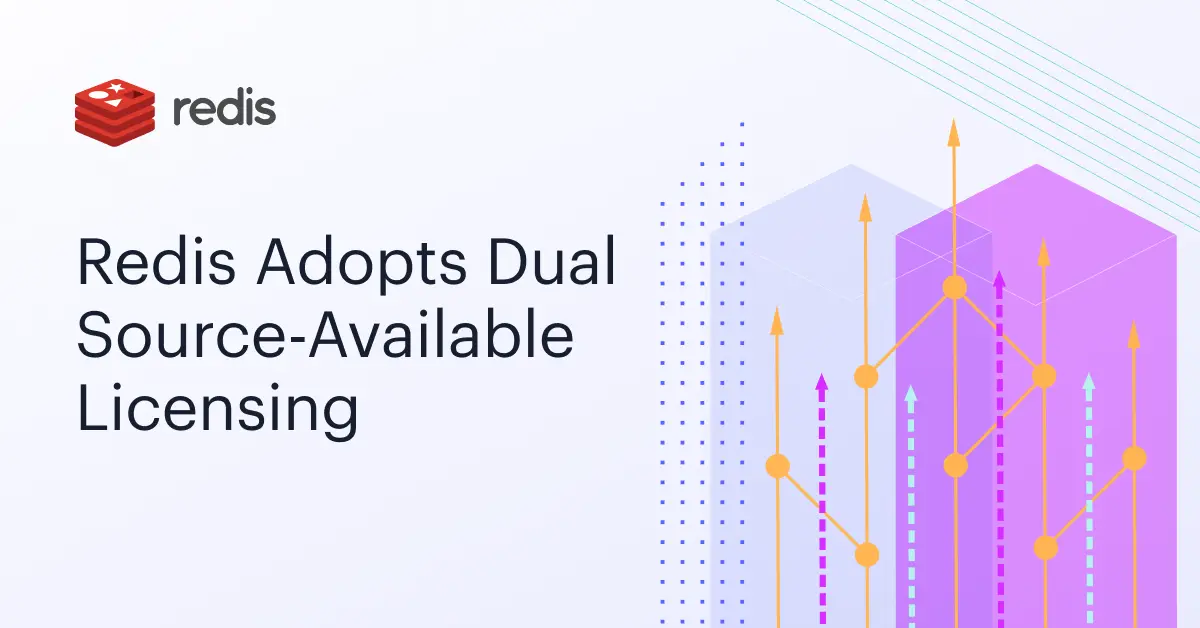- cross-posted to:
- loud@programming.dev
- redis@programming.dev
- cross-posted to:
- loud@programming.dev
- redis@programming.dev
Looks like there will be a need for another fork 😒
Looks like this will be it: https://codeberg.org/redict/redict
In practice, nothing changes for the Redis developer community who will continue to enjoy permissive licensing under the dual license. At the same time, all the Redis client libraries under the responsibility of Redis will remain open source licensed. Redis will continue to support its vast partner ecosystem – including managed service providers and system integrators – with exclusive access to all future releases, updates, and features developed and delivered by Redis through its Partner Program. There is no change for existing Redis Enterprise customers.
Seems this currently touches only cloud “resellers” of redis
That’s just marketing speak. Neither of the new licenses are OSI approved or FOSS.
So?
Fauxpen source licenses (both of the “business” variety as well as the so-called “ethical” variety) have a fatal flaw: they prioritize the interests of the rightsholder over that of the community or the user. They are thus not so different than a standard proprietary EULA in concept, even if they are more permissive.
The reason this is an issue is because it inhibits code reuse. True free software licenses don’t privilege the interests of the rightsholder any more than copyright law already does, because in the free software movement the developer is just a fellow user/member of the community. In other words, the GPL is the GPL is the GPL no matter who the rightsholder of the GPL code is. This means that code from many different rightsholders can be mixed together into a single program with no issue. Linux, of course, is probably the biggest example of this.
FOSS projects must not discriminate the use of the project. Meaning no matter you host it for internal use, or resell the project as a service, they shall be treated the same with the same rights.
God forbid giant companies like Microsoft and Amazon should have to contribute to the development of open source software they massively profit off of.
Get angry at companies making them feel this is necessary instead
Ffffork it dead. Needs a better name anyway.
Blueis readthis OpenRedis (lol) wrotethat Redis95 Yakvs
OpenRedis, so they can never close it
OpenAI stares away
That’s likely a trademark violation.
wrotedat
hmm, or bluedat
As predicted: https://codeberg.org/redict/redict
With SSPLv1, does that mean one can sell redis hosting as long as everything used to manage it is open source? It says it’s based on AGPL. So if say digitalocean open sourced all their api’s and UI they could still offer managed redis. It seems like the answer is yes but then the blog post also says
Under the new license, cloud service providers hosting Redis offerings will no longer be permitted to use the source code of Redis free of charge.
That sounds like no.
This just shows the true intention of the SSPLv1, i.e. to openwash what is in reality a shared-source license.
Are all these wacky licenses because the OSI doesn’t have an AGPL (ostensibly anti-cloud) equivalent BSD style permissive license?
The ostensible point is to prevent resellers from platforming your code. SSPL is an answer to, say, AWS offering your product much cheaper than you can. RSAL seems to be Redis spinning their own SSPL, BSL, whatever bullshit license because they’re not happy with the existing faux open source cloud licenses that prevent platforming.
There really isn’t a good way to handle this from an open source perspective. Cloud majors can and will undercut the fuck out of anyone to establish dominance. Ideally you’re providing a better support experience or working with them (until they decide to kneecap you) to maintain your business. Previously Redis had an paid tier that had functionality not available at the OSS level. I think that’s also legit.
I personally loathe the compliance issues these random shitty fucking licenses throw and don’t think trying to claw back business from majors is the right approach. The little guy is going to follow the path of least resistance which means you’ve made your software enterprise only.
Is BSD 3 copyleft? Or is it permissive like MIT?
MIT and BSD 2 are basically the same thing. BSD 3 extends BSD 2 with a limitation on using contributors to promote without permission. The BSD family is not copyleft.
Thanks







